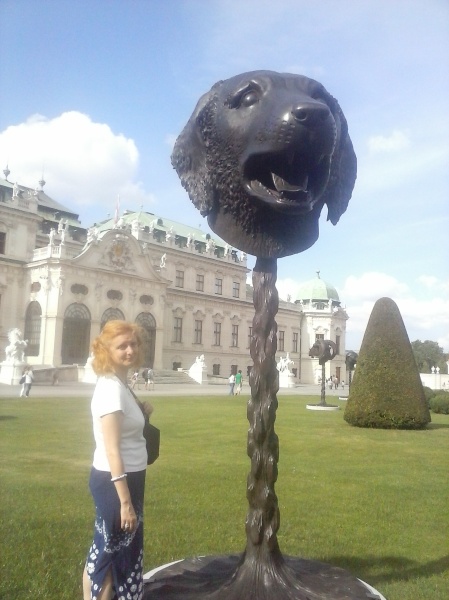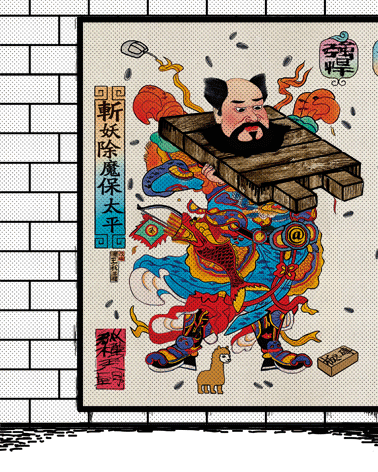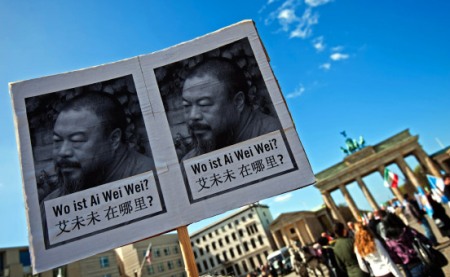《晚报》
晚报!晚报!
早有早报,
晚有晚报。
不是不报,
时侯未到!
WANBAO
Wan bao! Wan bao!
Zao you zaobao,
wan you wanbao.
Bu shi bu bao,
shi hou wei dao!
LATE NEWS (WANBAO 晚报, also BAOTAN 报摊 = NEWSSTAND)
late news! late news!
dawn has dawn news,
dusk has dusk news.
not that there’s no report,
time hasn’t come.
(bao = newspaper, revenge, retribution, karma, report)
“Wan bao!” is the cry of newspaper-sellers that begins every afternoon in every city.
This poem has only five or six lines.
The last four lines are very close to a popular Buddhist saying.
The last two lines are the same.
shan you shan bao,
e you e bao
bu shi bu bao,
shihou wei dao!
Shan means good, e means bad, evil. I have substituted shan with zao, e with wan. Benevolent becomes early, evil late.
WANBAO
Wan bao! Wan bao!
Zao you zaobao,
wan you wanbao.
Bu shi bu bao,
shi hou wei dao!
In meinem Buch und auf meinem Blog gibt es sehr viele verschiedene chinesische Gedichte. Dieses erste Gedicht auf Chinesisch habe ich ungefähr 1999 oder früher geschrieben. Ich glaube, es ist unübersetzbar. Sehr chinesische Stimmung. Es ist sehr kurz.
Ao = au. Das “bao” hier wird sehr kurz und entschieden ausgesprochen. Y = deutsches j. Chinesisches J ist wie auf Englisch. Das i bei “shi” ist wie das türkische i ohne Punkt. Also eigentlich kein i.
“Wan bao!” rufen Zeitungsverkäufer am Nachmittag und Abend in chinesischen Städten. Wanbao ist Abendzeitung, zaobao Morgenzeitung; z.B. Shanghai Zaobao. You (jo-u) bedeutet ‘gibt es’. Zao bedeutet früh, aber auch ‘Morgen’ im Sinn von Guten Morgen. Ich stehe jeden Tag um halb sieben auf, das ist jetzt Sonnenaufgang. Da mache ich ein Foto vom Balkon aus. Manchmal auch von meinem Sohn oder meiner Tochter beim Frühstück. So ein Foto kommt dann ins chinesische Internet, mit diesem Zeichen: 早. Zao!
《晚报》
晚报!晚报!
早有早报,
晚有晚报。
不是不报,
时侯未到!
WANBAO
Wan bao! Wan bao!
Zao you zaobao,
wan you wanbao.
Bu shi bu bao,
shi hou wei dao!
Vielleicht habt ihr den Reim auf -ao schon bemerkt. Ao = au. Wanbao, Abendzeitung. Aber dieses “bao” bedeutet nicht nur Bericht, Meldung etc, sondern auch das Karma, das von einer guten oder schlechten Tat zurückkommt. Achtung, sehr spezifisch chinesische und asiatische Stimmung! Wirklich. Zao you zaobao, wan you wanbao. Morgens kommt die Morgenzeitung, abends gibt es Abendblatt. Soweit so banal. Aber da gibt es ein sehr bekanntes buddhistisches Sprichwort. Shan you shan bao, e you e bao. Bu shi bu bao, shi hou wei dao! Die letzten zwei Zeilen sind genau dieselben wie in meinem Gedicht. Bu shi bu bao, shi hou wei dao.
善有善报,
恶有恶报。
不是不报,
时候未到!
Gutes hat gute Folgen, Böses böse. Shan you shan bao, e you e bao. Das “e” hier ist ein kurzes, entschiedenes Schwa, eher wie ein ö als wie ein deutsches “e”. Bitte versucht einmal, das ganze Sprichwort laut auszusprechen. Y = deutsches j, ou = ou. Sh wie auf Englisch. Shan you shanbao, e you ebao. Bu shi bu bao, shi hou wei dao! Bu bedeutet hier nein, nicht. Bu shi = ist nicht, das ist nicht so. Nicht, dass es kein Karma gibt, nur die Zeit ist noch nicht da. Shi-hou heißt Zeit. Wei heißt noch nicht. Ei wie bei Beijing (Peking), also kein deutsches “ei”. Ai Weiwei heißt wörtlich Ai Nochnicht Nochnicht. Ai Zukunft Zukunft. Ai ist der Familienname. Siehe auch die Wikipedia-Einträge zu Ai Qing und zu seinem Sohn Ai Weiwei. Aber zurück zu meinem Gedicht. Bu shi bu bao, shi hou wei dao. 不是不报,时候未到。Diese beiden Zeilen sind genau gleich wie in dem alten buddhistischen Sprichwort. Und auch in den Zeilen davor habe ich nur “gut” (shan 善) mit “früh“ (zao 早 frühmorgens etc.) ersetzt und ”böse” (e 恶) mit “spät” (wan 晚, spät und abends) ersetzt. Schaut bitte noch einmal hin. Das meiste ist gleich, nicht wahr? Deshalb ist mein Gedicht unübersetzbar. Es wirkt nur, wenn man das Sprichwort schon kennt. Jede und jeder kennt es in China, Taiwan etc. Aber was haben Morgen- und Abendzeitungen mit Karma zu tun? Nicht, dass da kein Karma kommt, nur die Zeit ist noch nicht da. Nicht, dass nicht berichtet wird, nur die Zeit ist noch nicht reif. Diese beiden Sätze sind auf Chinesisch dasselbe.
In meinem neuen Gedichtband ist dieses Gedicht auf Seite 67, unter 晚报.













